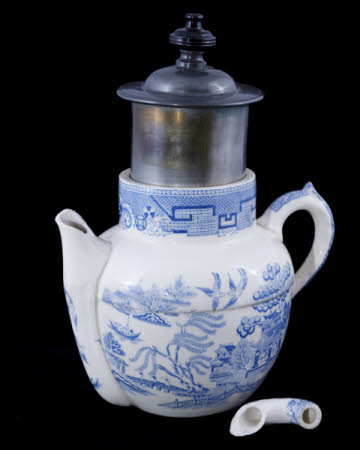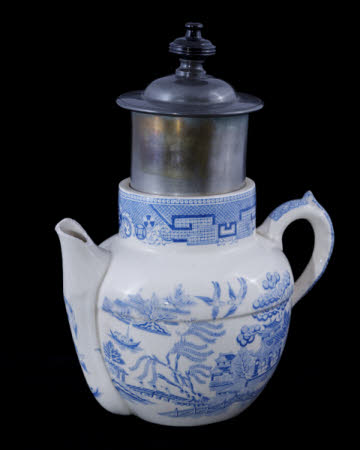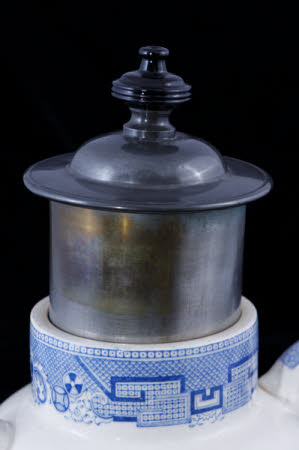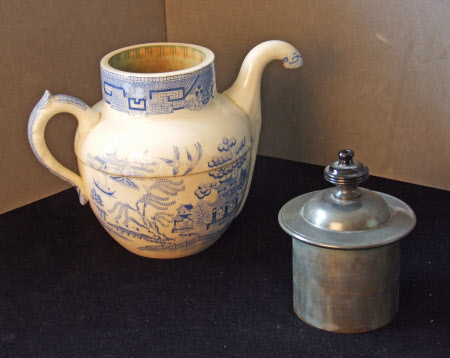Self-pouring teapot
Doulton and Co
Category
Historic Services / Food & drink preparation
Date
1886
Materials
Earthenware; silver plated; gutta percha (?) or resin
Measurements
212 mms (Height)
Place of origin
Manchester
Order this imageCollection
Blickling Hall, Norfolk
NT 353502
Summary
'Self-pouring teapot', white earthenware, Royal Doulton, c.1886. Blue and white willow pattern around body, and diaper-work and geometric pattern on handle and around rim, 2 birds and a house-boat up spout. Down-curved spout. Copper alloy lid which acts as a plunger, with black bakelite knob with hole which when covered and depressed forces tea through the ceramic fitted strainer in base of pot and up the spout. Marked on base in blue 'Royle's Patent Self-Pouring, No. 6327, 1886, Manufactured by Doulton's of Burslem for J.J. Royle, Manchester'. 'Doulton, Willow'.
Full description
This model of the 'Self Pouring Teapot" was the invention of John J. Royle (1850- ), who started a foundry and engineering business in King Street West, Manchester in 1882. His self-pouring teapot was patented in 1886. Royale became a successful industrialist, moving to Great Bridgewater Street in Manchester in 1890, before moving to a large industrial site, the "New Works" at Irlam, Manchester. His company produced heat exchangers, water heaters, radiators and evaporators for industrial and commercial use. It was originally designed and produced as a promotional item for his customers, it became so popular that a production of several thousand were comissioned from Doulton and Co., of Burslem, Shropshire, and metal examples from Joseph Dixon and Sons of Sheffield. The teapot works by a pumping mechanism and was designed for the large Victorian family who required large teapots. The lid is raised and then depressed with the finger covering the small hole in the top of the lid, generating pressure within the teapot, hence expelling the tea through the tea and out the spout. The curved spout meant the teapot did not have to be lifted, and the added bonus of the water being forced through the tea leaves in the bottom of the pot, was thought to enhance the flavor. The teapots were supplied to Queen Victoria in 1887 as well as the Princess of Wales (Alexandria of Denmark) and to the Grand Duke Serge of Russia.
Provenance
Gift of Miss B Ashton Taylor
Makers and roles
Doulton and Co, porcelain manufacturer John James Royle (1850-1919), inventor John James Royle (1850-1919), patentee








